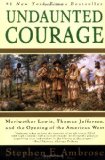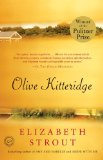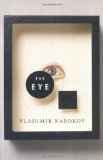Book Review: "The Penelopiad" by Margaret Atwood
May 19, 2008

A spare, quick read, outlining the tale of Odysseus’ Penelope from her own point of view, and his execution of twelve of her maids (which seems quite brutal from our modern perspective) upon his return from his voyages.
Atwood’s retelling pieces together scattered bits from various classical sources to build a more complete picture of the relationship between Penelope, Odysseus, the doomed maids and other characters in her domestic life.
The careful, delicate prose of the main narrative is punctuated by verse-chapters in chorus form, ostensibly performed by the maids, a la Greek drama of the era. It’s a nice touch, though Atwood’s style is sometimes so sparse as to make the stanzas feel a bit lightweight or oversimplified. But the overall effect is rhythmic and appropriate.
I do recommend reading–or at least having a passing familiarity with–The Odyssey and the Iliad before this book, as it will have deeper meaning. But it’s not absolutely essential–Atwood gives you some background and fills in some gaps. You’ll learn something, either way.
In all, the story is both heavy and light at the same time, singsong and dirge-like, sad and triumphant. Recommended.
One Comment
Recently Reviewed
Get the Books
Read my Reviews
Related Posts
- Books: The Onus of Translation
September 8, 2006 - Book Review: “The Tricking of Freya” by Christina Sunley
April 15, 2009 - Book Review: "The Three Theban Plays" by Sophocles (trans. Robert Fagles)
May 29, 2008 - 2008 Reflections: March: When all Else Fails, Go Limp
December 26, 2008 - Book Review: “Histories” by Herodotus (Landmark)
January 3, 2010






So glad to finally know someone else who has read this — I really appreciate your book reviews and local history and your whole blog generally. Ever since reading the Odyssey, I had wanted to read a version of it from Penelope’s point of view, and when I found out Margaret Atwood was doing it I was really excited. Then I loved the book and the writing but was disappointed in Penelope’s jealousy of Helen — sometimes Atwood takes woman’s inhumanity to woman a little far? It’s been a couple years since I read this, but the idea of faithfulness with a man who’s known for being wily, of raising the son of a hero to be a hero on ones own seemed more interesting than the relationship to Helen — I want Penelope to be heroic, not a victim, I think, or paradigms of heroicness that aren’t about stabbing cyclopes and fooling witches.